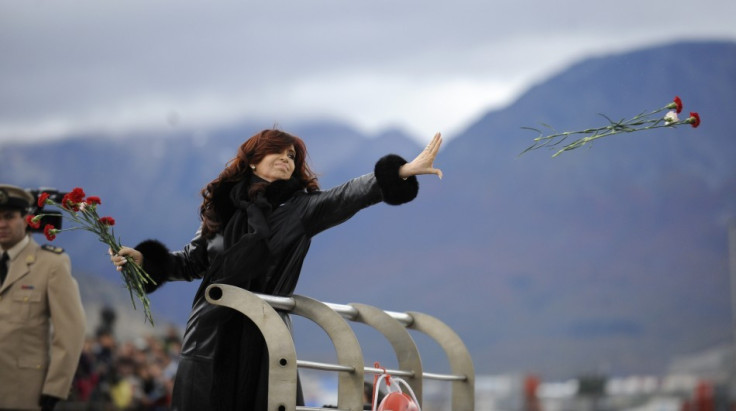Falklands Goes to Polls to Decide British Status

The people of the Falkland Islands went to the polls today at the start of a two-day referendum in which they will decide whether they want to remain a British dominion.
The plebiscite comes after months of escalating rhetoric from Argentina, which knows the islands as Las Malvinas and claims they were unfairly seized by Britain.
Last year marked the 30<sup>th anniversary of the 74-day war between the countries in which a British task force repelled a mission from the Argentine army to take the islands, with 255 British and 650 Argentine servicemen being killed.
Of the islands' population of 2,900, their 1,672 UK citizens can all vote, and in the island's capital Port Stanley homes and businesses were bedecked in Union Jacks, leaving many observers in little doubt as to what the result will be.
Since the discovery of commercially viable oil reserves near the South Atlantic archipelago, tensions between London and Buenos Aires have escalated.
Argentina's president, Cristina Fernandez de Kirchner, has said that her government does not regard the referendum as relevant as the dispute is territorial.
Dick Sawle, a member of the islands' legislative assembly, played a key role in organising the referendum. He told the BBC's Andrew Marr Show that he hoped it would reaffirm the islanders' right to self-determination.
"I would hope that whilst the government of Argentina may not listen to us, I hope the people... will listen to us, because I think there are many people within Argentina who are not in tune with their government," he said.
He rejected President Kirchner's suggestion they were an "implanted" population, saying the Falklands had been settled throughout history in the same way as South America, but with no indigenous population to displace.
Julie Clarke, owner of the Bittersweet cafe, told the BBC: "Without a shadow of a doubt, it'll be a big fat 'yes'. These are our islands, this is our home, and I think the rest of the world needs to hear us and see us for who we are."
© Copyright IBTimes 2025. All rights reserved.






















